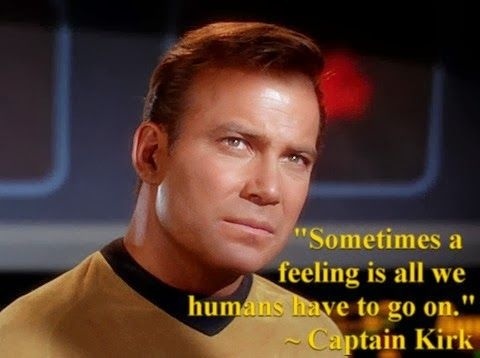I am a big fan of Star Trek, not only because I believe it's a great TV franchise, but also because it exudes great many lessons that startup founders can borrow.
A stoic, calm, logical, level-headed character, seldom shaken by emotions… working with a charismatic, headstrong, passionate, emotional character wildly popular among his folk…
It doesn’t require genius to guess that I’m describing the iconic duo Spock and Captain Kirk.
For the uninitiated, these two are protagonists of Star Trek, one of the most culturally-influential media franchises in history.
The fictional character James T Kirk appears in the series as a captain aboard a spaceship he and his crew use on their intergalactic explorations. Fans love Kirk for his leadership skills, ability to navigate tough situations diplomatically, his drive for knowledge, among other things.
S’chn T’gai Spock, a part-human Vulcan humanoid is another central character from the science fiction TV series, much loved for his rational thinking and use of logic.
Together, they explore worlds where no man has gone before.
Spock and Kirk’s shenanigans don’t just make for gripping television content. They have also been serving as great lessons in management, team building and so much more over the last few decades.
A startup founder has to just peer beyond the obvious to see how Spock and Kirk make for splendid teammates.
The various pieces of the puzzle
With their diametrically opposed but complementary personalities, Kirk and Spock show you how it takes people and personalities of all kinds to make a successful team.
That one person can’t singlehandedly run a successful startup or mission is common knowledge, so entrepreneurs should consciously work on this while building their founding teams.
You should start with identifying what your strengths are, and what you might probably require assistance or expertise on.
And this goes beyond just the technical skills.
An entrepreneur who’s an expert at identifying business opportunities, attracting customers, and making noise about his product would certainly need a partner who brings the technical skills to build the product.
But there’s so much more to a partnership than just a good confluence of technical skills.
The yin to the yang
I’m, of course, pointing to the more intangible skills such as decision-making, team-management, or nurturing company culture.
In any successful partnership, you’ll find one person who puts head over the heart, and the other that goes with the heart more often, when in a dilemma.

Captain Kirk in Star Trek
“Logic is the beginning of wisdom, not the end.” — Spock
In a business setting at a startup, it could be someone taking a decision on a marketing campaign based on data, projections, and logic or a decision driven by gut and supplemented by rational thinking.
There is of course no right or wrong here, and there is no one code to success. With the same set of people, one project might be a phenomenal hit and another could fall quite flat.
But what’s important is that all aspects of a point are considered before a decision is taken.
“Insufficient facts always invite danger.” — Spock
For which you’d need people of complementing personality types, i.e., you need a Kirk and a Spock.
Moreso when it comes to the cofounder of your startup.
The all-crucial cofounder
Take any successful company and you’ll find that the co-founders are diverse, in their technical skills and their personalities, each playing off of the other’s strengths.
But the cofounder relationship is tricky business.
There’s a fine line between having someone with the same wavelength and having a ‘yes man’, as they say.
The two partners should have the same amount of passion, determination, grit, and other such qualities required of an entrepreneur, but should also differ from each other on certain aspects. That way, both partners are able to challenge and push each other to solve problems.
The two should be able to voice their disagreements, but should respect each other enough to know that when one takes the final call, it is in the best interest of both of them and the company on the whole.
“The prejudices people feel about each other disappear when they get to know each other.” — Kirk
The two should ideally come with complementary personality types — one who goes with the heart and the other who goes with the head — because only then does the startup get both and is able to succeed. Simply put, you need elements of Kirk and Spock.
There are, of course, exceptions where people who are gifted enough to have both, and do everything.
When this isn’t the case, you can’t really go actively looking for your Spock or your Kirk with a checklist in hand. You have to be conscious of these characteristics and requirements when you’re mentally scoping your network out for a solid cofounder, and things will fall into place.
At SuperOps, I’m the Kirk — I’m the GTM person, with a creative bent of mind, and when I absolutely have to choose between the head and the heart, I pick the heart.
And that meant that my cofounder would ideally have to be someone who puts logic ahead of gut.
I’m lucky to have found my Spock, and one who brings with him 20 years of experience building SaaS applications in IT & Big Data. I’m thrilled to introduce to you all the cofounder and CTO of SuperOps, Jayakumar Karambasalam.
Note: This post was originally published on SaaSBOOMi.





